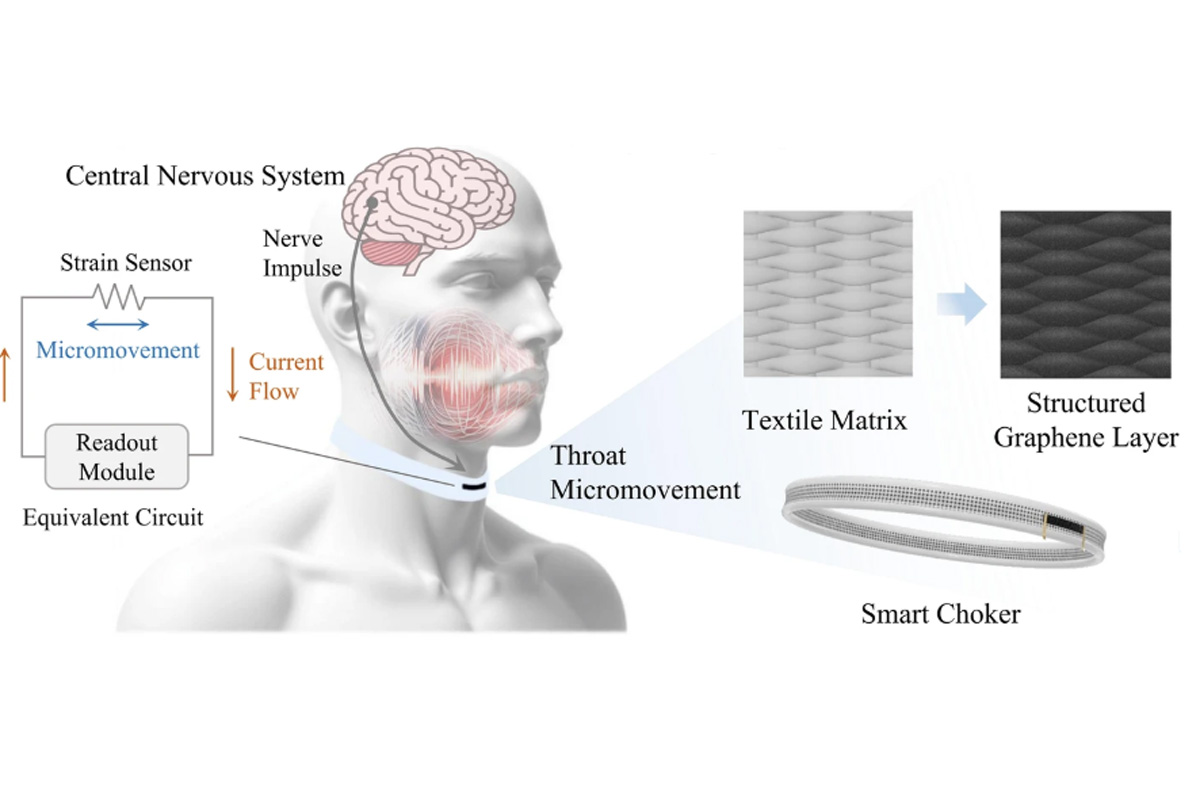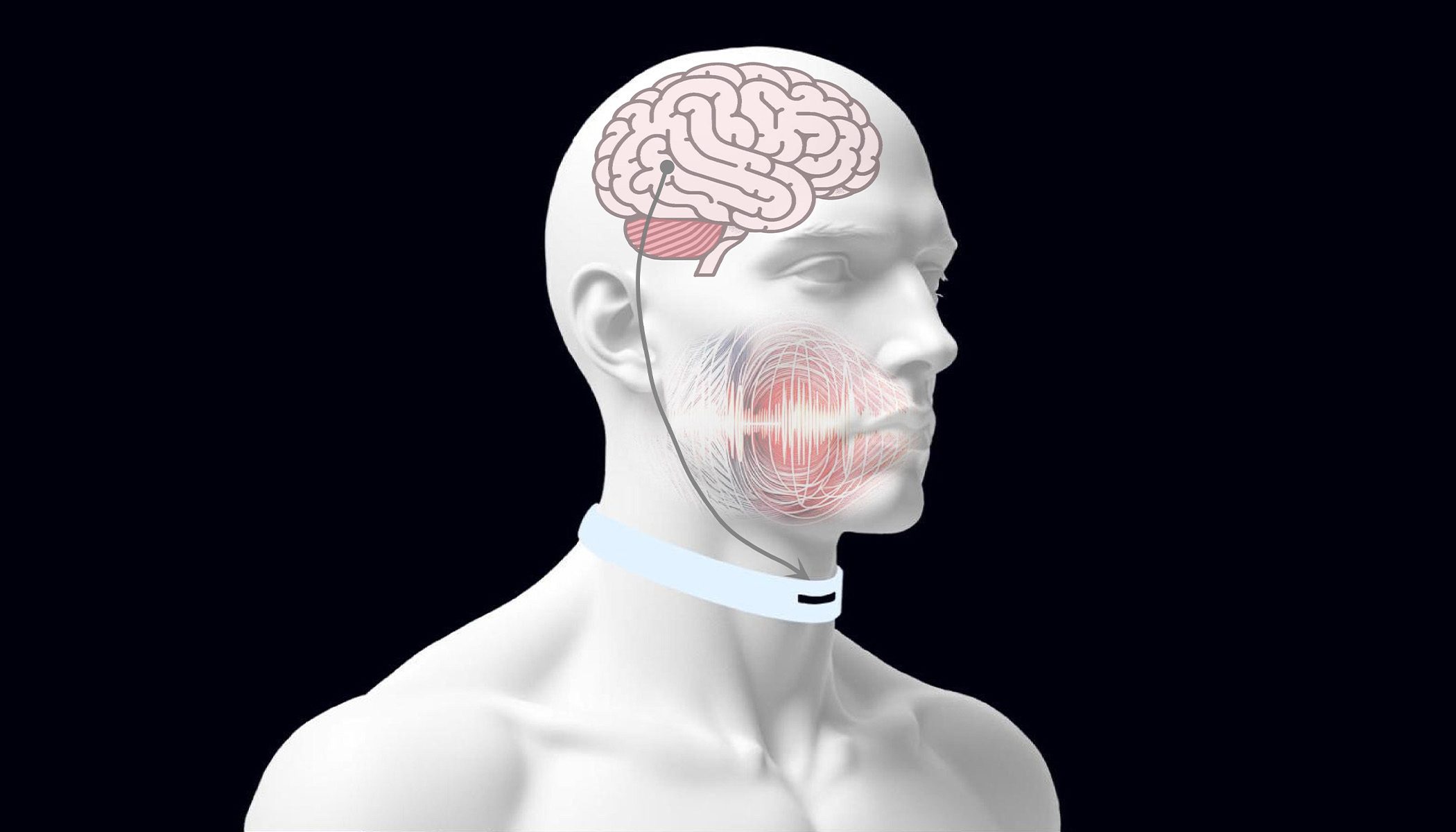A multi-channel textile-based strain sensor which, when combined with a deep learning model, can monitor vibrations from the throat area to detect sleep conditions and decode silent speech.
Incumbent effective sleep monitoring methods are too bulky and costly. Other smart wearable technologies are ineffective.

Benefits
- Small and comfortable form factor with no need for hospital recovery; textile construction aids washability, breathability and skin compatibility – pre-requisites for long-term usage.
- Can classify both nasal and oral breathing when monitoring sleep.
- The strain sensor array is ultrasensitive allowing even silently mouthed words to be converted into speech.
Applications
- Monitoring sleep patterns and diagnosing sleep-related disorders such as insomnia and apnoea.
- Aids individuals with temporary or permanent speech impairments.
- Can be integrated into wearable tech, such as devices for continuous health monitoring and smart garments.
Opportunity
We are seeking industrial partners to help co-develop and/or license this technology.




